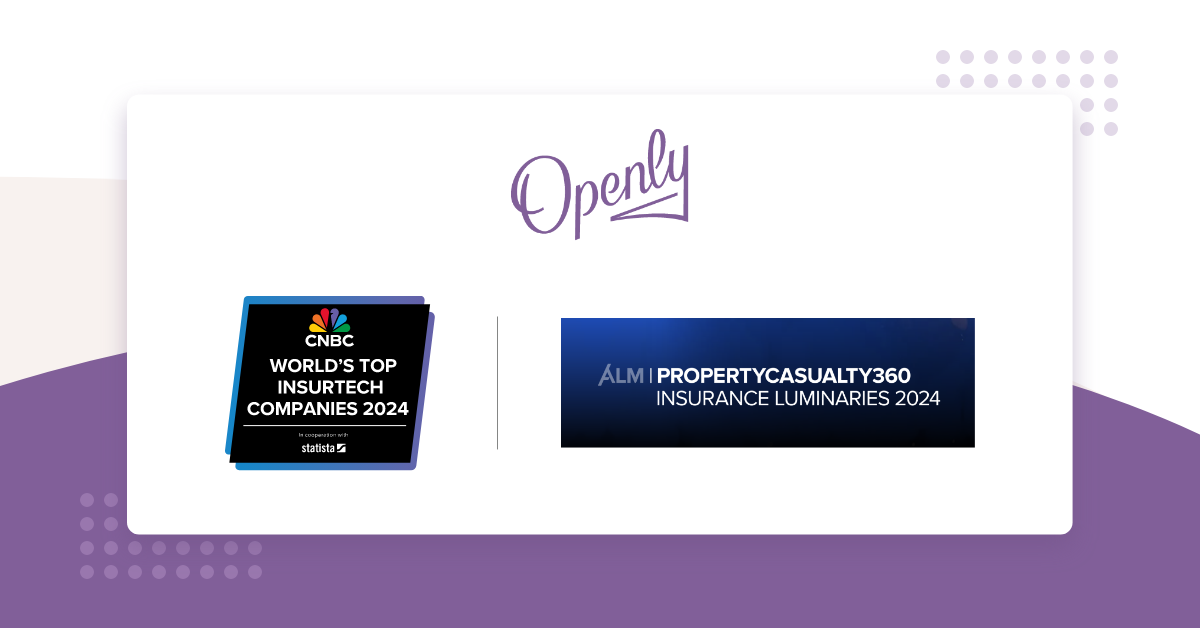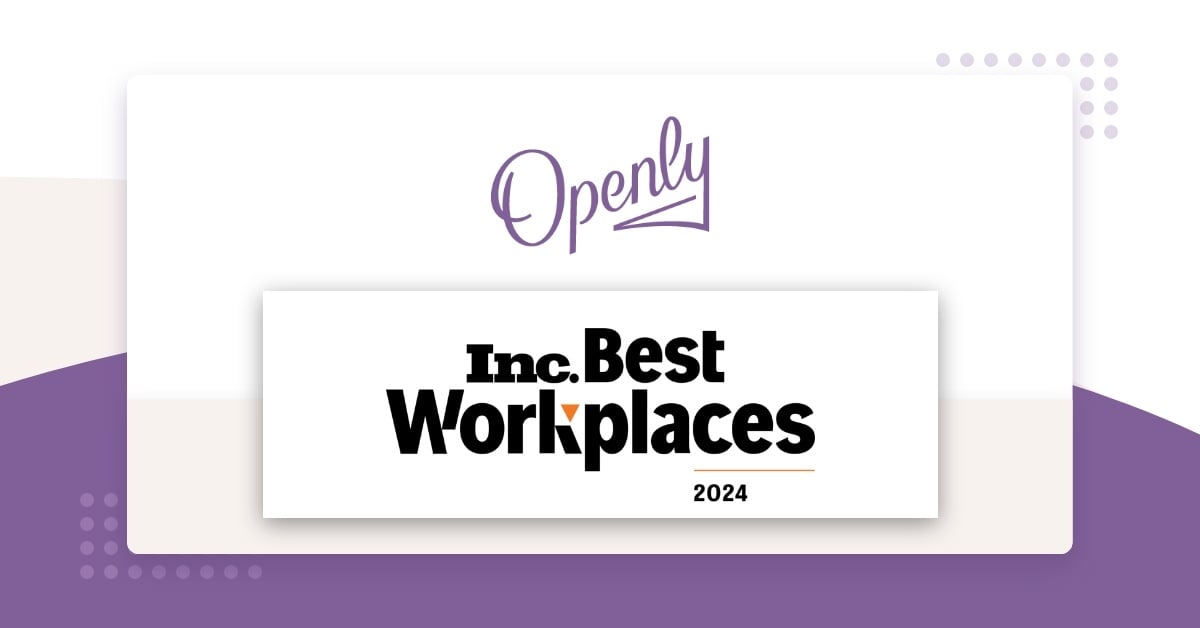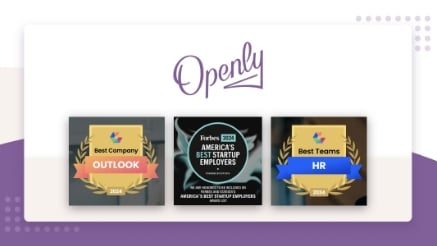Openly Pressroom
News
Brand Assets
News

Jun 18, 2025 | Thought Leadership
Why AI is the Insurance Agent’s Best Friend, Not Worst Enemy
Forget the fear of AI taking over—discover how it is actually transforming insurance agents into indispensable partners, supercharging their efficiency and deepening client relationships.

Jan 30, 2025 | Company News
Openly's $193 Million Financing Round from Eden Global and Allianz X to Support Growth
The funding, which includes $123 million in equity capital and a $70 million senior note, will help Openly expand its operations and further its mission in the homeowners insurance sector.

Oct 31, 2024 | Company News
Openly Named in CNBC World's Top 150 Insurtech Companies, PropertyCasualty360's Insurance Luminaries Awards
Openly has been recognized with awards for its innovative technology and outstanding workplace culture.
.jpg)
Aug 15, 2024 | Company News
Openly Begins Expansion into Delaware
Openly is expanding its insurance product into Delaware, marking its entry into the 24th state, following launches in Connecticut and Virginia earlier this year.

Jul 24, 2024 | Company News
Openly Named to Inc. Magazine's Annual List of Best Workplaces for the Second Consecutive Year
Openly has been recognized as a top workplace by both Inc. and Comparably. This dual honor highlights the company’s strong company culture, exceptional leadership, and commitment to employee satisfaction.

Jul 10, 2024 | Company News
Openly Launches in Virginia, Begins Rollout to Independent Agents
Openly is expanding its reach to Virginia, partnering with independent insurance agents to offer comprehensive coverage statewide. The company aims to empower agents with tech-enabled tools and provide homeowners with transparent, efficient insurance options.

Jun 04, 2024 | Company News
Openly Announces Winners of Annual US Openly Agency Championship™
Openly, the premium homeowners insurance provider, today announced the results of its annual US Openly competition. Agencies participating in US Openly competed to see who could issue the most Openly policies from January 1 to April 30, vying for eight winner's spots.

May 08, 2024 | Company News
Openly Begins Launch in Connecticut, Marking First State Expansion of 2024
Openly announced its expansion into Connecticut. The company offers comprehensive coverage through independent agents and will launch with a phased rollout to ensure a personalized onboarding experience.

Feb 27, 2024 | Company News
Openly Continues its Ascent in the Insurance Industry with Landmark Year in 2023
The momentum continues to build for Openly, the premium homeowners insurance provider, as today it announced a 96% customer satisfaction rating for agent and policyholder service interactions, a 79% customer satisfaction rating for claims, and 80% growth in gross written premium YoY in 2023. These statistics are a direct result of Openly's continued commitment to create a better homeowners insurance experience for independent agents and policyholders alike.

Dec 19, 2023 | Company News
Openly Wins Three Comparably Awards Highlighting Excellent Company Culture
Openly was recently recognized on the Best Company Culture, Best Companies for Women, and Best CEOs for 2023 lists by Comparably, a leading workplace culture and corporate brand reputation platform.

Let's Connect
For media opportunities and partnerships, contact media@openly.com.
Brand Assets
Brand Guidelines
Ensure brand consistency with our guide to using Openly's logos, colors, fonts, and more.
Read more
Promote Openly
If you’d like to publish unique copy or create co-branded promotional material, click the button below to request review and approval.


